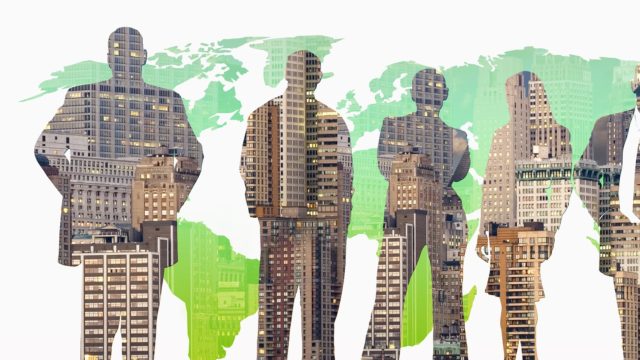Let’s imagine, for a moment, that you just received a call from the HR department of ABC Shoes. Congrats! You got the job. You walk into your first day and find yourself assigned to a small cubicle with thin, gray partitions separating you from the next person. Even though you’re helping to develop ABC Shoes, you have no idea what the customer really wants. Furthermore, you rarely see the CEO nor do you understand how he — and other senior leaders  — have allocated marketing funds.
— have allocated marketing funds.
Now, lets imagine, that you received a call from a different company, I Heart Shoes. You decide to take that job instead. You walk in on your first day to an open concept working space. You hear coworkers discussing ideas. You meet your team and they explain that everyone has a role in everything — from manufacturing shoes to chatting with customers. And your paycheck depends on how many shoes you — as a team — sell each month.
Two very different situations.
Dr. Gary Hamel, a management expert and author, is sure that our workforce is moving in the direction of the second scenario. An expanding role of AI and automation will put an emphasis on humanism, rather than bureaucracy. That’s one trend we, at Ambrion, are preparing for in 2019. Here are a few more:
Five generations in the workplace
Generation Z, those born in the mid-1990s to mid-2000s, are heading to work. This means five generations will be in the workplace at the same time. The little sibs are craving financial security and stability. They grew up during recessions, financial crises and school shootings.
The result, Janet Adamy, News Editor at the Wall Street Journal, says is a “scarred generation, cautious and hardened by economic and social turbulence.”
That’s quite a different approach than that of their predecessors, the Millennials, who scoffed at the traditional route of making a living and instead have opted for entrepreneurship and work-life balance.
According to consulting firm BridgeWorks, Gen Z makes up for 61 million people in the U.S. By 2020, they’ll account for more than 30% of the workforce. BridgeWorks describes the Millennials’ younger sister as being diverse and inclusive, resilient, and connected. But, they might lack communication skills; they grew up with a cell phone in their hands, so they’ll probably seem tech-obsessed.
A new kind of leadership will emerge
Leaders will learn to pivot. Both Millennials and Generation Z are expecting a new kind of leadership: one that’s inclusive, collaborative and innovative. Nucor Corporation, the largest steel producer in the U.S., has already leaned in to this leadership change. They stripped away management layers and put decisions and power in the hands of the employees.
“Teammates, not managers, drive our success,” their website says. “We promote the importance of equality for everyone. And when times get tight, we believe in “pain sharing,” where top management takes a cut in pay before everyone else.”
Increased employee engagement
As leaders of organizations are expected to change, employees will too, especially in the era of AI and automation. Instead of just clocking in and clocking out, they’ll be encouraged to connect to customers in creative ways and bring real value to their organizations.
Intuit, a financial software company, is one organization embracing this new form of employee engagement.
“We empower employees to bring their whole selves to work and to do the best work of their lives,” their website states. “Going the extra mile — and then some — is in our DNA. We practice outstanding corporate citizenship through sustainable business practices and employee-driven philanthropy, to help those who need it most.”
Dr. Hamel echoes these values. “I’ve learned that in almost any industry where you give people the chance to develop and use their creative gifts,” he says, “which is the core of huamnocracy, you find human beings able to do things that machines will never be able to do.”
Farewell, water cooler. Working remotely is on the rise.
Employees are desiring — and voicing — their need for more flexibility and the option to work remotely.
GoToMeeting recently surveyed 3,000 global office workers on their thoughts about working remotely. They said this perk allows them to make major life decisions, like spending more time with family and saving money and time on their commute. In fact, more than 40% of respondents between 24-44 said one of the top perks to working remotely was the ability to take care of kids, family members or pets.
Co-working spaces like WeWork, which was founded in 2010, has created a space to support businesses and entrepreneurs who can come together and collaborate.
“We’re helping hundreds of thousands of people find meaning in what they do. However, we do not want this to be confined simply to those within a WeWork,” says Chief Growth Officer Dave Fano. “We want to go beyond that — ensuring that workers everywhere, regardless of whether they are our members or not, are able to have access to a space that is right for them and allows them to succeed in what they are doing.”

